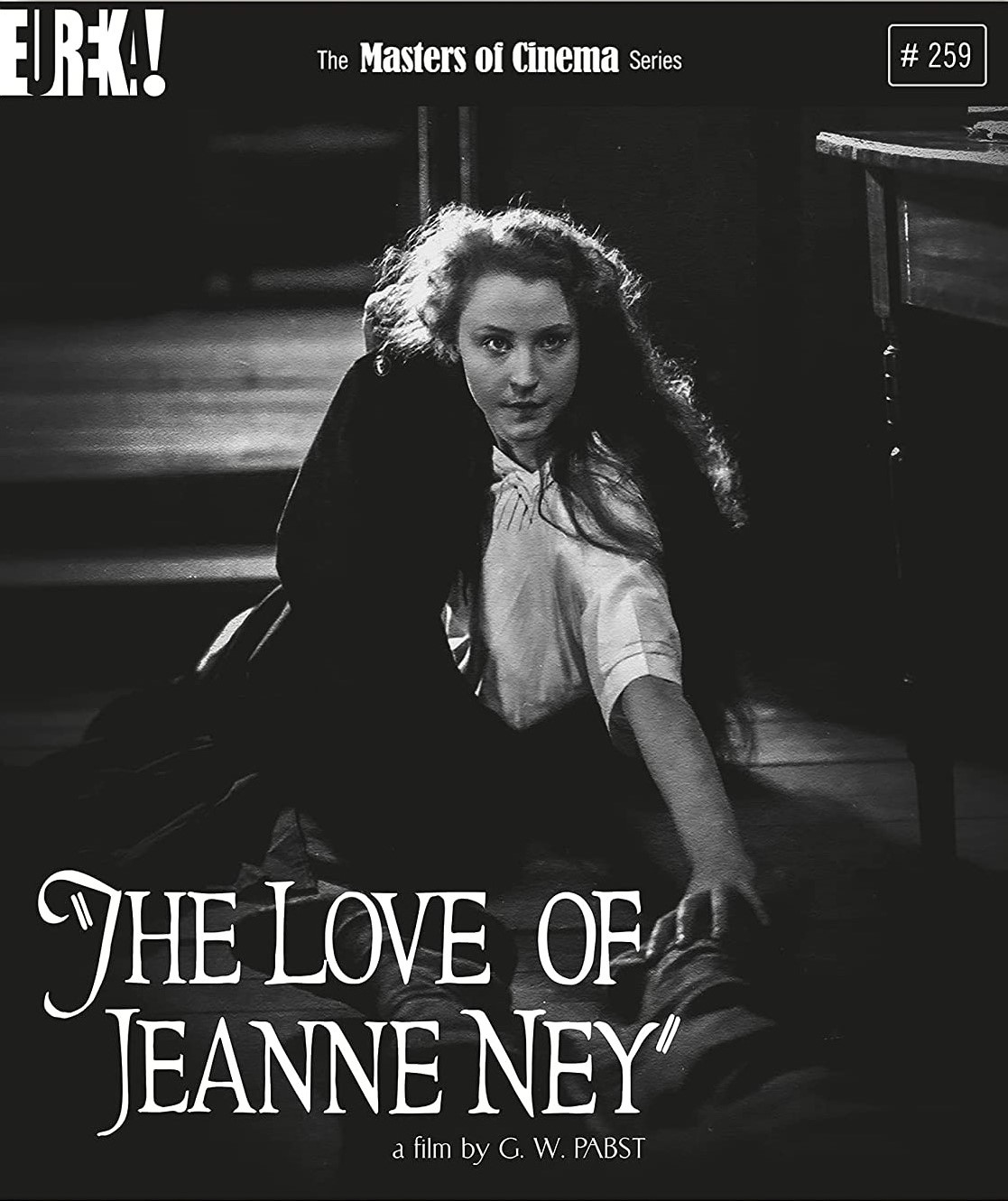GW Pabst’s The Love of Jeanne Ney (1927), adapted from the novel by the Russian revolutionary author Ilya Ehrenburg, is a fascinating example of a major movie, vividly rendered by a filmmaker at his peak, that was compromised by its producers’ commercial agenda.
Survive though it does as a late-silent-era German classic, Pabst’s sixth feature suffers in comparison with his Joyless Street (1925), the Louise Brooks vehicles Pandora’s Box and The Diary of a Lost Girl (both 1929), and The Threepenny Opera (1931).
The arch-realist Pabst was the leading exponent of the socially driven Neue Sachlichkeit (New Objectivity) movement that had emerged to counter Expressionism. Making Jeanne Ney in “the American style”, at the behest of his bosses at Berlin’s Ufa studio, was impossible, he later told an interviewer, “for the whole of our mentality is different”. The result was an ungainly mishmash that combines Soviet and German compositions and Soviet montage in a thriller-melodrama-comedy with a Hollywood ending.
 The bravura opening sequence, which barely relates to what follows, suggests that Pabst intended to make a caustic allegory of post-war pan-European decadence and anomie. Set during the Russian Civil War, it depicts White Army soldiers debauching riotously in a Crimean brothel. Unnoticed among them is the quiet, erect figure of the Red Army agent Andreas (Uno Henning), and wallowing in squalor in an adjacent guest room is the war profiteer Khalibiev (Fritz Rasp). Shortly afterwards, Khalibiev hawks a list of Bolshevik spies to a French political observer, André Ney (Eugen Jensen), while leering at his daughter, Jeanne (Édith Jéhanne).
The bravura opening sequence, which barely relates to what follows, suggests that Pabst intended to make a caustic allegory of post-war pan-European decadence and anomie. Set during the Russian Civil War, it depicts White Army soldiers debauching riotously in a Crimean brothel. Unnoticed among them is the quiet, erect figure of the Red Army agent Andreas (Uno Henning), and wallowing in squalor in an adjacent guest room is the war profiteer Khalibiev (Fritz Rasp). Shortly afterwards, Khalibiev hawks a list of Bolshevik spies to a French political observer, André Ney (Eugen Jensen), while leering at his daughter, Jeanne (Édith Jéhanne).
An unintended assassination during a bungled burglary and a Bolshevik attack force Jeanne to flee. She's urged to return to Paris by Andreas, her respectful lover, who is bound there himself. Images of the Red Army’s victorious advance recall the cinema of Eisenstein and Pudovkin.
Avoiding landmarks and sunshine, Pabst’s cinematographer Fritz Arno Wagner shot the Parisian outdoor scenes as if they were making a documentary. But verisimilitude yields to the convoluted, overwrought story – more Dickensian than Zola-esque – with its two-dimensional characters. Jeanne is obliged to seek help from her uncle Raymond, who runs a sleazy detective agency. She has to fend off his lustful advances and those of Khalibiev, who cruelly courts the well-off Raymond’s blind, trusting daughter Gabrielle (Brigitte Helm) for her money.
The addition of a witless comic strand involving a missing diamond and a parrot dissipates the film's downbeat atmosphere and anxious tone. However, Pabst breathed life into Jeanne and Andreas's romance by having them spend the night together in a hotel room. The morning-after sorrow of a bride, whose wedding night unfolded in a room across the street and is witnessed in her distress by Jeanne, makes an oblique comment on marital expectations.
Jéhanne was a patrician beauty and Henning resembled Gary Cooper (and sometimes Conrad Veidt), but they were pallid leads, notwithstanding the uncharacteristically naughty smile Jeanne gives the camera when anticipating the hotel adventure. It’s Rasp, frequently cast as villains, who dominates the film with his uncanny presence and look, which Fiona Watson persuasively characterises as rat-like in the lively, informative video essay she and David Cairns contribute to this Eureka!/Masters of Cinema Blu-ray.
The Metropolis star Helm excelled as the blind girl, a combination of Little Nell and Lillian Gish so pathetically deceived by Khalibiev’s attention that she caresses his right hand while he’s trying to embrace Jeanne with his left. Hertha Von Walther makes a mark as the Paris flapper whose conscience is pricked when Khalibiev crows about his plan to widow himself after marrying Gabrielle.
Pabst’s reputation was tarnished when he directed, reluctantly it's said, two propaganda films for Goebbels during World War II. After the war, he tried to rehabilitate himself by making anti-Nazi films. It has been questioned if he was sincere – and it’s hard not to see a strain of anti-Semitism in the casting of the Jewish actors Licho, as the money-crazed Raymond Ney, and Sig Arno as his devious top detective Gaston respectively. That there’s no indication that either Rasp or his character Khalibiev were Jews is salutary, paradoxical though that sounds.















Add comment